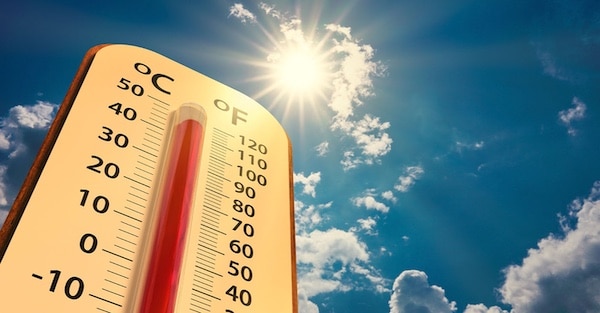As record-breaking heat waves sweep across the country this summer, a new national poll reveals an overwhelming majority of Americans are linking the punishing temperatures to climate change–and voicing deep concern about the government’s ability to respond.
The American Climate Perspectives Survey 2025, conducted by ecoAmerica, found that 86% of Americans say rising temperatures have increased their concern about climate change, with more than half reporting they are “a lot” more concerned. The sentiment cuts across demographic and political lines, with 97% of Democrats, 83% of Independents, and 79% of Republicans expressing heightened worry about the climate crisis. “Americans are connecting extreme heat to climate change, their health, and government inaction,” said Meighen Speiser, Executive Director of ecoAmerica.
Nearly nine in ten respondents recognize the toll heat is taking on public health, with 58% saying extreme heat affects health “a lot.” This awareness is remarkably consistent across racial, age, and income groups. Among Black Americans, 91% said rising temperatures have intensified their concern about climate change, reflecting some of the highest concern levels among any group surveyed. Those concerns are not abstract. Decades of research by the Brookings Institution, NOAA, and others show Black communities often face the greatest exposure to extreme heat and the fewest resources to adapt. Studies have documented that historically redlined neighborhoods, where many Black Americans live, are routinely up to 10 degrees hotter than wealthier, predominantly white neighborhoods nearby.
In cities such as Atlanta and Baltimore, Black homeowners are significantly more likely to face heat risks and energy insecurity, limiting their ability to cool their homes as temperatures rise. Nationally, Black renters experience higher rates of energy insecurity, with over half struggling to afford adequate cooling during heat waves. Meanwhile, the latest study also points to a notable shift in how Americans perceive the link between climate change and extreme weather. Eighty-two percent now believe that climate change is making extreme events, such as floods, wildfires, and hurricanes, more frequent and severe, up six points since 2021. The most dramatic change is among Republicans: the share who recognize that climate change is fueling extreme weather surged 17 points over four years, from 58% in 2021 to 75% in 2025.
These findings arrive as proposals to slash funding for the Federal Emergency Management Agency (FEMA) and the National Oceanic and Atmospheric Administration (NOAA) advance in Washington. The agencies are widely seen as the nation’s front-line defense against disasters and a critical source of weather forecasting and emergency relief. The risks are particularly acute for Black communities already facing disproportionate impacts from hurricanes and flooding, as seen in the devastation of New Orleans after Hurricane Katrina and more recent storms that have repeatedly displaced predominantly Black neighborhoods in the Gulf Coast and Southeast.
The survey shows Americans are not just worried about rising temperatures–they’re anxious about the government’s readiness to protect communities. Seventy-nine percent said cuts to FEMA and NOAA make them more concerned about the federal government’s ability to respond to climate impacts. That includes 92% of Democrats, 76% of Independents, and 69% of Republicans, underscoring that the anxiety is bipartisan.
Generational divides are also apparent. While 95% of young adults reported that extreme heat has boosted their concern about climate change, the figure was lower–but still significant–among adults over 65, at 70%. However, across all age groups, majorities agree that the crisis is escalating and requires immediate action. “These findings show it’s time to drop partisan politics and rather meet this moment with urgency, leadership, and protection,” Speiser said.

